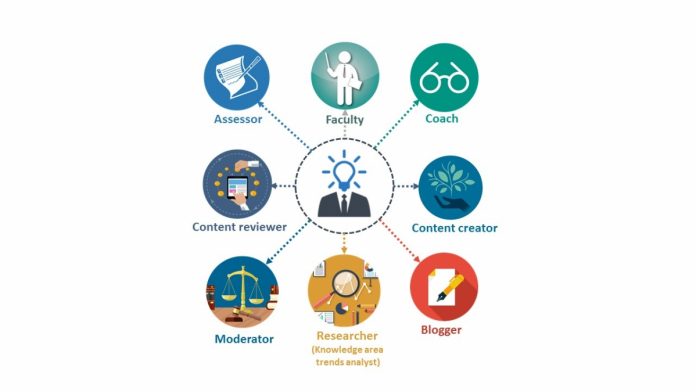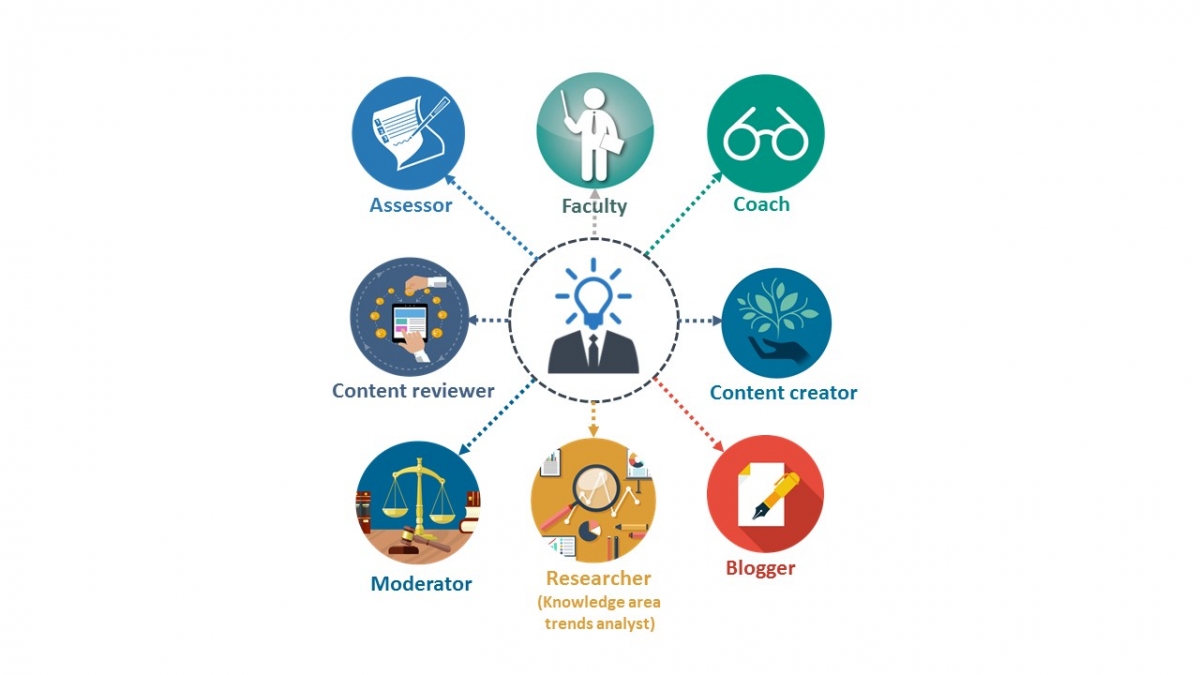
Learning and sharing is a non-debatable critical value in today’s knowledge industries. Organizations today have top-quality subject matter experts (SMEs) who are not only well-known in the industry but also have a wide array of experiences within the organization, making them indispensable assets.
The challenge is how to successfully transfer knowledge from SMEs to the next generation while they are:
- Aging out of the workforce
- Taking early retirement
- Moving on to a different project
- Leaving the organization in search of greener pastures
- Staying in the organization but not sharing their expertise
For a knowledge organization to thrive, it is vital to ensure that there is a continuous flow of learning and sharing in all the knowledge areas. How can the HR function help in developing the much-needed slew of experts? After all, it is important for business continuity, and HR, as a business partner, plays a key role. Let’s look at how knowledge transfer can be enabled in a multi-channel, process-oriented, systemic, and engaging manner so retention and transitioning of expertise of these experts becomes a culture in the organization.
ROLES—SME IDENTITY
Role is the identity provided to an employee in any organization. To ensure they have the right roles, organizations must adopt or create career development models and systemically create roles to enable role movements. While these roles focus on jobs, they also create a provision for an associate to play dual or even multiple roles as needed.
For role assignment, I propose something similar to a business model of a matrix organization with business verticals and horizontals. While vertically, associates have role and movement opportunities, why not horizontally have SMErelated roles given as preferences to associates to choose, providing multiple benefits to them? While choosing one should be mandatory, they must be free to choose more than one, each one benefiting them and adding on to their profile value both internally and outside the organization. The goal is for both the vertical job role and the horizontal SME role to become proud identities for the employee.
VALUED SMES CREATE VALUE
SME roles must be valued internally within the organization. There should be fixed criteria to carry each of these SME roles, and a clear demand should be created to motivate SMEs to complete and achieve them. Some of the SME roles that can be created are illustrated in the graphic below. Talent Development or a Learning & Development function in HR plays a major role in this.

While many organizations today are using these roles for knowledge transfer, creating additional SME roles can help change the mindset of associates who think they don’t have time to perform the responsibilities associated with such roles. With the introduction of engaging mechanisms to keep employees motivated toward continuous learning and sharing, and also rewarding them appropriately, this becomes a powerful way to retain not only expertise but experts.
HANDPICKING LEARNERS
While SMEs get prepared and motivated toward knowledge sharing, the model won’t work if there are no takers. It is equally important to inculcate the culture with a thirst for knowledge acquisition. Using gamification and human psychology, we must create a transparent mechanism in which demand is created for SMEs from whom associates can learn. At the same time, there needs to be a healthy competition among learners to appreciate the spirit of learning. Today’s learners are tomorrow’s potential SMEs, so this is important. Popular SMEs with higher SME roles must engage with handpicked learners who show keen interest in self-development. They also could be high performers as per the organizational definition. The only condition must be that these high performers also must be keen learners to gain the position to be coached by popular SMEs.
DIGITIZATION OF THE PROCESS AND LEARNING EXPERIENCE
The SME roles, their movements, and associates as learners experiencing gamification through learning all must be digitized and a transparent, engaging experience for everyone. This enables the “Continuous Learning Culture” to catch on quickly across the organization. While SMEs must be able to author any learning quickly and easily, any learner must be able to take up learning in a simplistic and enjoyable manner through the digitized system. The organization must focus on building up the knowledge of not only the junior employees but also of all the SMEs, so they always have the scope to learn and master something new while they are able to transition their expertise to others.
TCS CASE STUDY
Tata Consultancy Services (TCS) has a learning management system (LMS) and connected platforms that enable this process. Here is a realtime example of how expertise did not leave the organization even when experts did.
One of the niche skills in Assurance is test data management. There was huge demand for this skill in the market, and clients were keen to have more of these experts. The challenge was that there weren’t many experts in this area as it is too niche. From within a project, seven SMEs were selected to play different SME roles as listed in the graphic on the previous page, and they were recognized and rewarded for doing so.
While they became contributors to learning content, they also became virtual mentors to learners around the globe who were keen on learning this niche skill through their blogging. To keep the challenge open to many of the SMEs who were working on this niche skill, crowdsourcing of assessment questions was done, and those who contributed assessment questions were rewarded.
SMEs became content reviewers who reviewed the crowdsourced questions, and a complete curriculum was created. Three batches were launched in three months on this niche skill supported by SMEs who also became faculty in the digital internal LMS platform. While approximately 1,200 people were selected to learn and complete the course, there were roughly 600 associates who cleared the assessments and were ready for allocation in this niche skill. While three of the SMEs moved out of the organization, TCS now had 600-plus associates who had become proficient in the same skill and many more SMEs willing to fill multiple SME roles that were created. Along with this, we had panel discussions where SMEs were moderators and panelists for senior associates who might need to talk about this technology to clients. These sessions also were digitized and published for larger consumption. This motivated many more SMEs to share their expertise through the different SME roles. Some 78 percent of employees who attended these sessions confirmed they were able to speak about the topic during their discussions with colleagues and clients.
There’s no doubt that organizational values play a major role in developing more and more SMEs. Only organizations that not only convey “learning and sharing” as a value but also implement it obtain more credibility in the market. While that helps attract SMEs to join the organization, it also can help retain expertise even when the experts leave.
Swarnasudha Selvaraj is the head of the Digitization function of Talent Development at Tata Consultancy Services (TCS), where she is responsible for the enhancement of the learning management system utilized by 300,000-plus employees. Prior to this, she has played multiple leadership roles in Learning & Development at Tata Consultancy Services and Murugappa Group of Companies, India.



